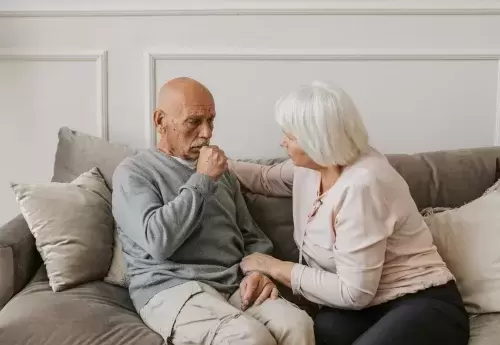A new year, a new Administration, and a new Congress brings new opportunities to best attend to our nation’s mental health. This year, in addition to working with Congress on the pressing issues around health care and social services that surface, Mental Health America (MHA) will have four areas of focus:
- Prevention for All. Too many children are being expelled from preschools and child care. MHA will continue to work to ensure that parents, pediatricians, child care providers, and preschool teachers have the resources, training, and coordination they need to get every child kindergarten ready;
- Early Identification and Intervention for those At Risk. It is too hard for families of school-age children to get the mental health services they need. MHA will be working to break down policy barriers that make it hard for schools and health care providers to work together. We recently wrote about our work in this area here.
- Integrated Treatment for those in Need. Too many Americans can’t access any mental health care. MHA will be working with state governments, health insurance plans, and provider networks to find innovative solutions (like peer support and collaborative care) to address issues in parity and network adequacy. You can read about some of our thinking on this topic here.
- Recovery as a Goal. We pay too much for jails and prisons, when people could have just received services instead. MHA will be working to give criminal justice and health care incentives to work together to make sure as many people as possible are thriving out in the community, rather than unnecessarily in jail.
To prepare for this work, MHA spent the last year partnering with the National Collaborative on Education and Health and with sponsorship by the W.K. Kellogg Foundation to identify the biggest challenges and opportunities facing America in promoting mental health in education and child care, and what policy changes could we make to ensure our children grow up as healthy and successful as they can be. We found there was a lot we can do, and we are delighted to announce the release of our final report. Our recent blog for Health Affairs lays out our work from the past year and some of the most exciting and surprising recommendations, and you can access our full report here.
MHA wants to partner with you to make these recommendations—and all our policy priorities–a reality in your community, so that your children, families, and neighbors can get the mental health supports they need. Please contact Nathaniel Counts, J.D., MHA’s Senior Director of Policy, at any time to get involved in this effort.
In addition, MHA’s Regional Policy Council (RPC) just concluded another eventful year coordinating national and state policy and advocacy efforts with MHA affiliates nationwide—holding policy meetings, conducting calls, interacting with legislators, meeting with business and corporate partners, and presenting webinars. We are looking forward to an exciting 2017, with large-scale policy initiatives focused on the value to communities and the fiscal value of providing a full range of mental health prevention, treatment, and recovery services and supports.
As we did last year, 2017 will see four policy meetings that will coincide with national legislator group meetings: The National Governors Association (NGA) in February in Washington DC; The American Legislative Exchange Council (ALEC), in July in Denver; the National Conference of State Legislatures (NCSL) in Boston in August; and the Council of State Governments (CSG), in December in Las Vegas. To read a detailed report about last year’s events and a preview of upcoming activities, please click here.
The RPC is also pleased to announce a new advocacy campaign. 2017 will be the inaugural year for the RPC Back-Home Campaign, which will connect MHA affiliates with their respective, local, state, and federal legislative delegations. Watch for more details and technical assistance on planning and conducting outreach in your home community. To learn more, contact Caren Howard, MHA’s Advocacy Manager at any time.
MHA thanks you for all your dedication and hard work, and looks forward to working with you throughout 2017 to make this year a great year for mental health.




